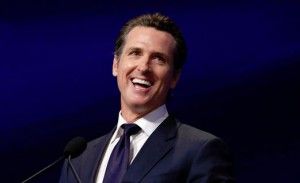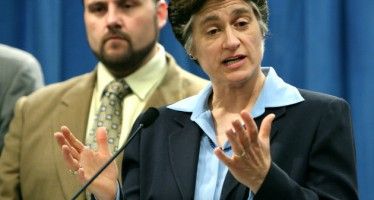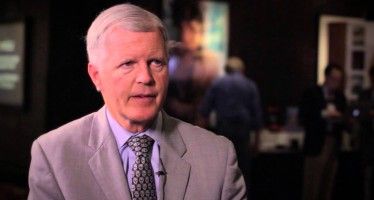Gavin Newsom takes steps to run for governor of California
 Shaking up an already fast-moving political landscape, Lt. Gov. Gavin Newsom revealed in an email to his list that he had taken the first step toward a run for governor in 2018.
Shaking up an already fast-moving political landscape, Lt. Gov. Gavin Newsom revealed in an email to his list that he had taken the first step toward a run for governor in 2018.
Framing his announcement as a characteristically Californian statement “without evasiveness or equivocation,” he explained he was creating the initial committee necessary to mustering resources for a run.
A combination of reasons fueled Newsom’s early jump into a race that’s still out on the other side of the next presidential election. On the one hand, as the Los Angeles Times reported, Newsom’s committee will empower him to “raise up to $28,200 per supporter for both the primary and general elections, meaning he can collect $56,400 per donor.”
On his website, Newsom played up the practical importance of that head start. He said running “in America’s largest, most diverse state demands that I start raising resources now.”
On the other hand, Newsom, like other Democrats victorious in their last election cycle, has maintained a sizable war chest — in Newsom’s case, around $3 million. Nevertheless, Newsom likely will be expected to come up with much more than that.
“Running for governor is likely to cost $30 million to $50 million, or possibly much more,” the Washington Post observed. “Meg Whitman, the former eBay chief executive who ran against Brown in 2010, spent $144 million on a losing campaign.”
A quiet deal?
In the meanwhile, attention has focused on the timing between Newsom’s announcement and Attorney General Kamala Harris’s announcement that she will run to replace retiring Barbara Boxer in the U.S. Senate.
Just last month, Newsom told San Francisco radio station KGO that it was “laughably premature” to discuss his possible interest in taking over for Brown in 2018. He described his disinterest in Boxer’s seat as merely dispositional. “I’ve got a bias toward my children, my wife, my family. I’ve enjoyed my time as mayor, and I like the executive side of the world.”
The careful positioning led some to speculate that Harris and Newsom, close enough to share the same consultant, quietly bargained behind the scenes to run for different offices. Publicly, that was denied. A source close to Harris told the San Francisco Chronicle she and Newsom didn’t make a deal to split up their campaigns:
“She never talked to him,” the source said. “I think he read the tea leaves and made his decision.”
“However, Newsom — who has long let it be known that he wants to be governor — said he talked to Harris on Sunday night to let her know that he wasn’t going to be running for Senate.”
Decision time
Now that both Harris and Newsom have formalized their plans, the pressure has ratcheted up on other ambitious Democrats, whose next steps are the subject of feverish speculation. Top Democrats in Los Angeles have been affected most by the Harris/Newsom split.
As the Post reported, the two San Franciscans have long been “cognizant of the other’s ambitions and aware that running against each other could provide an opportunity for a rival from Los Angeles” — specifically, former Los Angeles Mayor Antonio Villaraigosa, who faces “renewed pressure” to choose which rival, if any, to challenge.
In Washington, D.C., making the rounds on the occasion of accepting an award, Villaraigosa stayed mum on the Senate race, preferring to regale reporters with a campaign-like discussion of the importance of education. That in itself could reflect a greater interest in a gubernatorial run, however.
Villaraigosa conspicuously supported the parents in the Vergara case, which challenged California’s teacher tenure system, claimed the existing system discriminates against minorities and the poor. And he endorsed Marshall Tuck, the reformer opposed by the teachers’ unions in November’s race for state superintendent of public instruction.
By contrast, Harris filed the Vergara appeal in the case, defending the status quo, an action supported by Newsom.
And Harris and Newsom endorsed Tuck’s opponent, union-backed incumbent Tom Torlakson, who won the race.
Related Articles
Some worry California Citizens Redistricting Commission lacks diversity in applicant pool
Despite requests from more than 20 civic groups that she keep recruiting applicants for the California Citizens Redistricting Commission past
Video: The wisdom of Milton Friedman
If Milton Friedman were alive today, what words of wisdom would he impart on us? CalWatchdog.com editor-in-chief Brian Calle asks
Dems damn dams
JUNE 16, 2010 By KATY GRIMES With a win for PG&E but a loss for hydroelectric power plants in the




